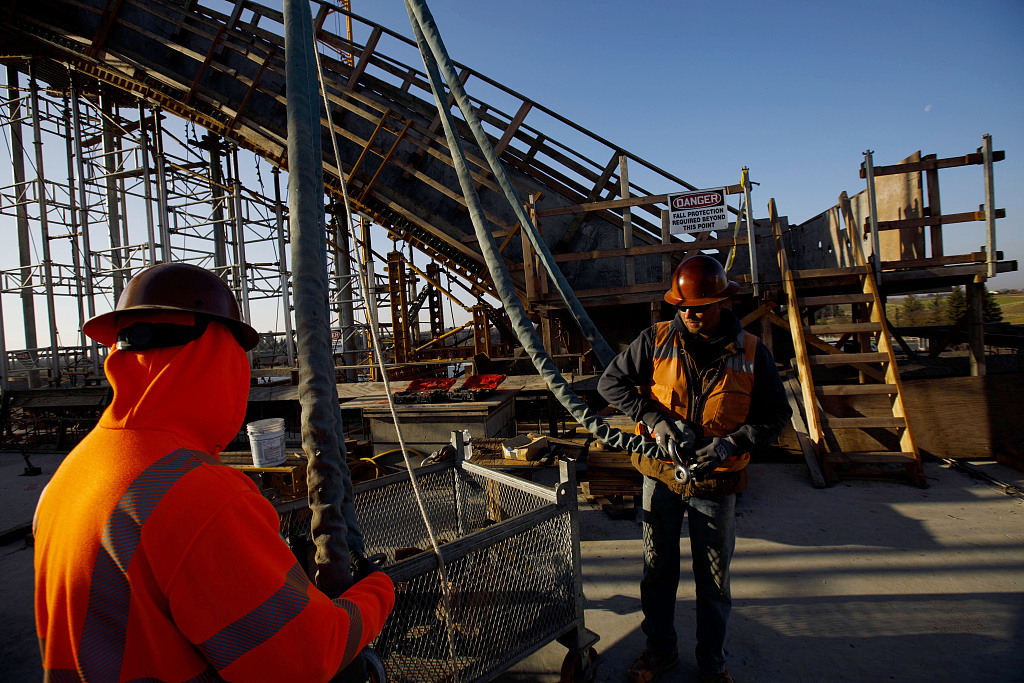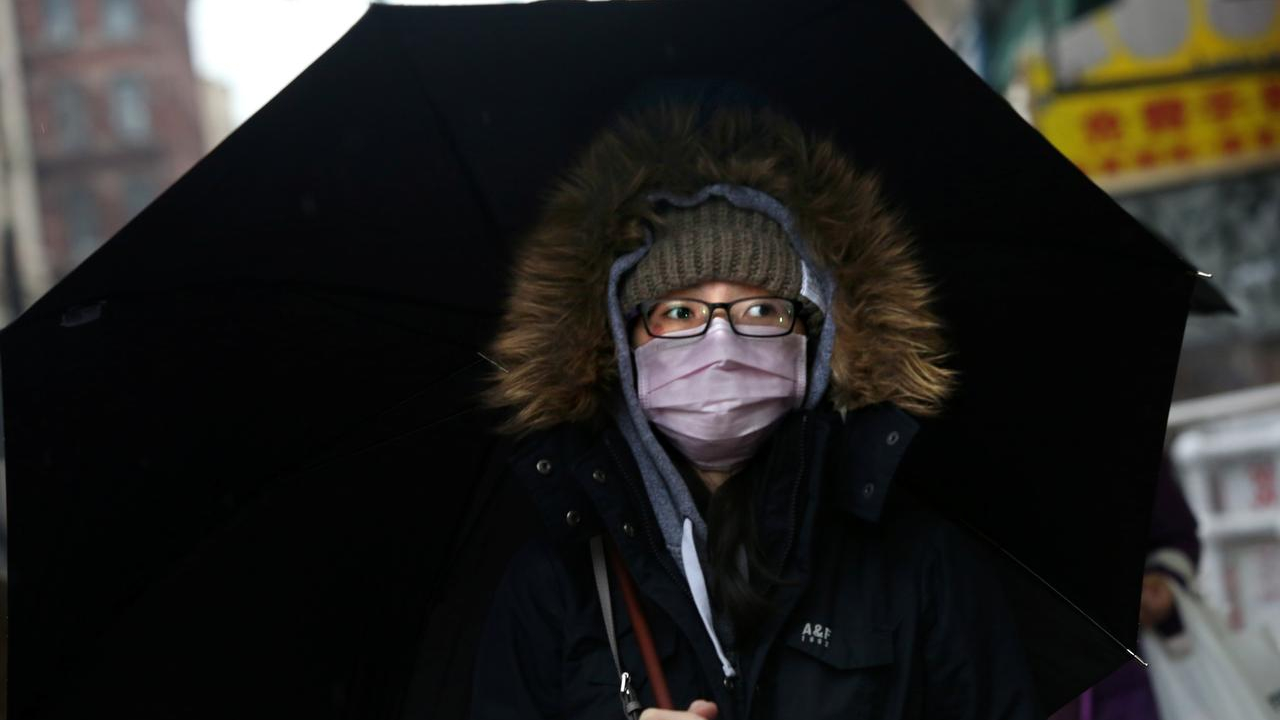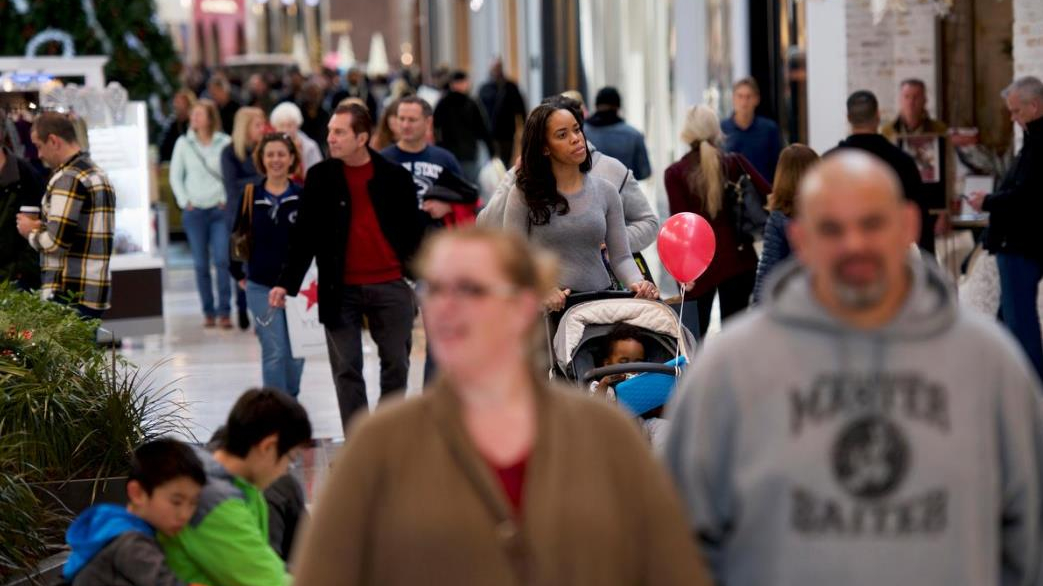
A lot of hand-wringing is taking place in America over the shocking absence of a federal law that guarantees paid family or sick leave.
In interim guidelines issued to businesses in the advent of an outbreak of coronavirus in the United States, the first recommendation of the U.S. Centers for Disease Control (CDC) is for employers to "actively encourage sick employees to stay home."
Say what?
Millions of American workers are actually dangerously exposed by the lack of national legislation that mandates workplace medical leave for serious illness.
Among rich nations, it is almost alone in that regard.
As the coronavirus which causes COVID-19 disease circles America, many have come to regret this glaring omission.
"Coronavirus has laid bare the extent to which the failure of our nation to require paid sick leave has now endangered all of us," wrote Terri Gerstein, director of the State and Local Enforcement Project at the Harvard Labor and Worklife Program, in an article for The Hill.
It is well known that many Americans choose to continue to work and avoid a doctor's visit while sick because they cannot afford unpaid leave or they don't have health insurance or it's too expensive.
Alarm bells ring
"There's no reason to expect people with symptoms of an upper respiratory infection would not do the same when coronavirus might present with a cough, with a low-grade fever, but not a completely debilitating illness," said David Blumenthal, president of the Commonwealth Fund, a global health think tank.

Construction is one the sectors in which workers are said to be reluctant to take sick leave. /VCG
Construction is one the sectors in which workers are said to be reluctant to take sick leave. /VCG
That could accelerate the spread of the contagious illness and has set alarm bells ringing.
"For the average worker who does not have access to paid sick days, the costs of taking unpaid sick time can make a painful dent in the monthly budget for the worker's household," was the sobering conclusion of a 2017 report by the Washington-based Economic Policy Institute.
The burden falls disproportionately on low-wage workers, including those who work with the elderly, who are among those most at risk for coronavirus.
The U.S. does have a law – the 1993 Family and Medical Leave Act (FMLA) – that requires some businesses to offer up to 12 weeks of unpaid leave to some workers for serious medical and family care needs.
However, only 60 percent of the workforce is eligible for FMLA protections because small employers are exempt, and even in covered work sites, not all employees are eligible, according to the Kaiser Family Foundation.
Americans support paid leave
Since the FMLA was passed, more than a dozen states have moved to expand benefits beyond the law's provisions but the absence of a federal standard is a major irritant to campaigners. But this unevenness rankles.

A person wearing a mask walks through Chinatown in New York, U.S., February 13, 2020. /Reuters
A person wearing a mask walks through Chinatown in New York, U.S., February 13, 2020. /Reuters
A study conducted three years ago by the Pew Research Center found that Americans largely support paid leave.
Most supporters said, however, that employers, rather than the federal or state government, should cover the costs. There was sharp division over whether the government should require employers to provide this benefit or let employers decide for themselves, and, rather surprisingly, relatively few saw expanding paid leave as a top policy priority.
Will that position in the table of precedence change in the current circumstances?
In a presidential election year, the issue of healthcare always features highly, and 2020 is no different. The influential U.S. House of Representatives Ways and Means Committee held a hearing as recently as January 28 on paid family and medical leave.
Powerful testimony was provided, among others, by Vicki Shabo, a senior fellow at the New America think tank, who denounced the existence in America of what Britons call a postcode lottery – a situation in which someone's access to health services or medical treatment is determined by the area of the country in which they live. Add the company for which they work.
Benefits to the economy
"Whether a son or daughter can afford to take time away from work to hold a parent's hand through chemotherapy treatments, a parent is home to see a baby's first smile, or a person can recover from a car accident before returning to work is largely dependent on the luck of geography and employer beneficence," Shabo said in written testimony.
"This uneven access to paid leave translates into unequal life opportunities and perpetuates pervasive disparities in income and wealth."

There is sharp division among Americans over whether the government should require employers to provide paid leave or let employers decide for themselves. /VCG
There is sharp division among Americans over whether the government should require employers to provide paid leave or let employers decide for themselves. /VCG
A national policy can provide economic benefits alongside improvements in public health.
"It is estimated that preventable emergency room visits among workers without paid sick days cost the United States more than $1.1 billion per year, with nearly half of the costs coming from taxpayer-funded programs like Medicaid, Medicare and the State Children's Health Insurance Program," said a fact sheet published in February by the National Partnership for Women and Families.
"If all workers had paid sick days, 1.3 million emergency room visits could be prevented and public and private costs would be saved."
Democratic presidential candidates have been weighing in on the issue. Senator Bernie Sanders has suggested that his controversial proposal of a single-payer national health insurance system could afford all Americans the ability to see a doctor if they develop the flu-like symptoms associated with COVID-19.
"The U.S. must end the national disgrace of being the only major country in the world not to offer paid family leave," Sanders said.
But, as always, deep divisions in the American political system stand in the way of real change.
Democrats favor some type of national social insurance program backed by dedicated tax funding that guarantees paid leave while Republicans prefer a bias toward the private sector which may be offered enticements such as tax credits to provide leave benefits.
Sadly, it might need a coronavirus catastrophe to bring about a compromise that will benefit the American people. Even then, given the dysfunction in Washington, you shouldn't count on it.